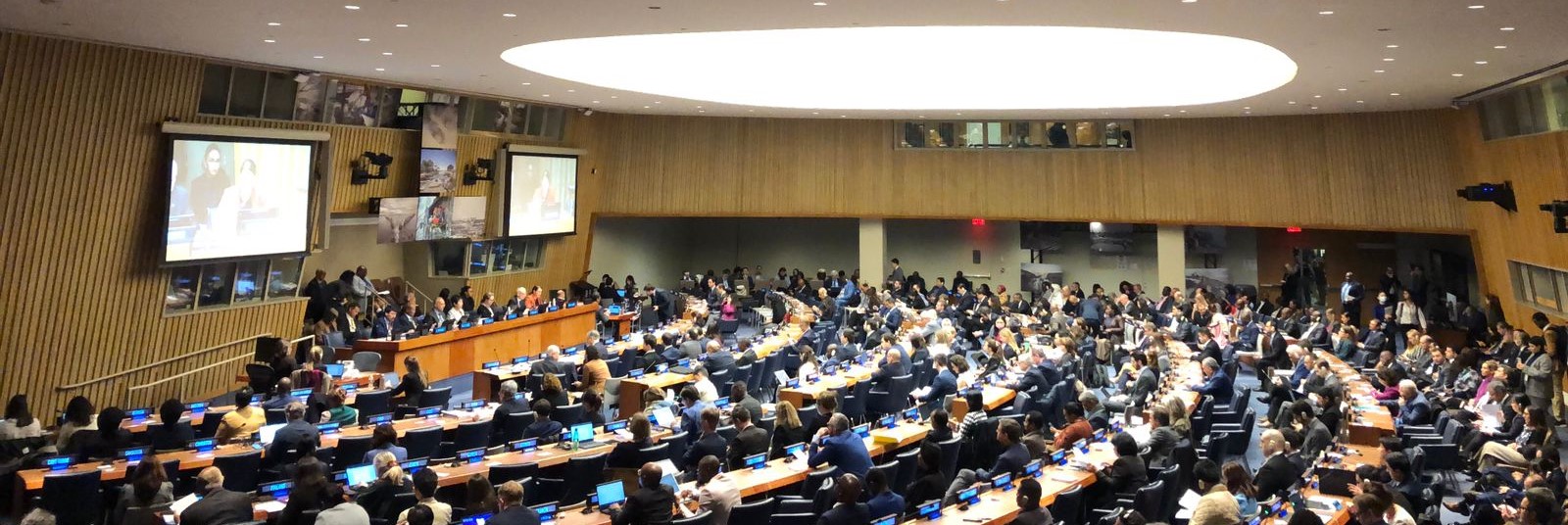The Conference on Water showed the ability of Brazil’s civil society to come together.
Published in 06 Apr 2023
Written by By the IAS team
Tags:
The United Nations (UN) Conference on Water , which was held at the end of last month, more than 40 years after the last event of its kind, was understood by the Brazilian civil society engaged with this topic as a great opportunity for mobilization and coordination.
This is how 14 organizations that would attend the conference, including the IAS, joined forces to ask the Brazilian government to send a qualified delegation to the event. They were joined by anothe 122 organizations and the government’s response lived up to expectations, with the sending of a delegation led by the Executive Secretary of the Ministry of the Environment and Climate Change (MMA), João Paulo Capobianco.
With a stance in line with the expectations of civil society, Capobianco emphasized, in the plenary session and in many other opportunities he had to speak during the Conference, between April 22nd and 24th, at the headquarters of the United Nations in New York, that access to water and sanitation is a form of social inclusion and a way to reduce inequalities, and that it is necessary to factor in climate change when talking about the management of water resources.

The head of the Brazilian delegation emphasized the importance of the government's commitment to zero deforestation and access to water as a public asset as key for ensuring water security in Brazil, and the government's role in guaranteeing this right.
Capobianco also stated that Brazil will present its progress and commitments in relation to this topic during the High-Level Political Forum of the UN next July, also in New York, when the progress of the countries towards the Sustainable Development Goals (SDG) will be assessed. “Brazilian civil society managed to sensitize the government to the importance of attending the Conference, and the centrality of the water issue to the government agenda and the lead role of Brazil”, said Mariana Clauzet, head of Networks and Partnerships at the IAS.
However, according to Telma Rocha, Program Director at Fundación Avina, the participation of Brazilian civil society organizations, one of the largest delegations at the Conference, went beyond that.
Manifestos for water
In addition to taking part in and organizing dozens of events, Brazilian activists were engaged in the creation and submission of important manifestos, such as the Manifesto for Water Justice, delivered to the UN Council and mentioned by the UN Special Rapporteur on the Human Rights to Water and Sanitation, Pedro Arrojo Agudo, during the Interactive Dialogues; the petition led by Avaaz, which garnered 560,000 signaturesand was delivered to the Executive Secretary of the MMA, calling on the Brazilian government to guarantee the Human Right to Water; and the Women for Water Manifesto, launched by Rede das Mulheres de Língua Portuguesa pela Água (Portuguese-Speaking Women's Network for Water).
The conference was also an opportunity to strengthen ties between entities that already work together, as well as to meet new partners, with emphasis on youth collectives, such as Engajamundo, and engage in an exchange of experiences with institutions from many countries. They also had contact with representatives from bodies and companies from the water and sanitation industry in Brazil, as well as with parliamentarians such as Federal Representatives Duda Salabert and Camila Jara, and São Paulo State Representative Marina Helou.
What lies ahead
All these interactions are expected to bear fruit going forward. A first outcome was an assessment meeting between the organizations and the federal government team, which is expected to result in the formation of a working group to collaborate with the government on water and sanitation..
“Being at the Conference made it possible for the organizations to coordinate and work together in different parts of Brazil, identifying common agendas, such as the recognition of water as a public asset that must be available to all, which is promising for us to achieve good results in water management and implementation of universal access to water and sanitation in Brazil”, added Mariana


